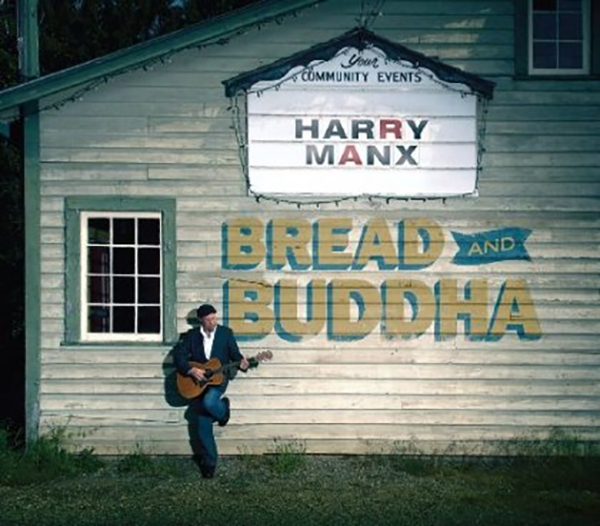
by Ian Mann
December 11, 2009
/ ALBUM
Folk blues with an ethnic twist and an undefined air of spirituality
The singer, songwriter and guitarist Harry Manx is an enigmatic figure who combines blues and folk song forms with elements of world music ( particularly that of India) to create a strong identity of his own.
Manx was born on the Isle Of Man, hence his choice of pseudonym, and was brought up in Canada but he has travelled widely spending time in Europe, Japan , Brazil and India. His time in India has given his music an air of undefined spirituality and it was his mentor Vishwa Mohan Bhatt who invented the twenty string Mohan Veena which appears on some of the tracks on this latest album. Manx also plays more conventional guitars including the National Steel often playing with his instrument across his knees lap steel style. Manx is a superb technician and his distinctive slide guitar sound is a key feature in the arrangements. His singing voice is assured and confident and speaks of a hard won wisdom.
“Bread And Buddha” is Manx’s tenth album and he has built up a considerable following on the Canadian music scene despite being relatively unknown in Britain. Hopefully “Bread And Buddha” will help to raise his profile in the U.K., mainstream success is unlikely to come knocking but Manx is the type of artist who could easily accrue a dedicated cult following.
Manx learnt his trade in the blues clubs of Toronto and the blues is still at the core of his work. “Bread And Buddha” comprises six original tunes plus four folk/blues covers with Manx accompanied by a floating cast of backing musicians. The arrangements are spare and elegant with Manx’ guitar and voice to the fore and he is well served by co producer John Bailey, the sound is needle sharp throughout.
Manx’s lyrics are enigmatic, almost haiku like at times as on the opening “Nine Summers Lost” and “True To Yourself”. There is an air of spirituality about them with Manx’s authoritative, semi spoken vocals adding suitable gravitas. There are hints of Van Morrison or a less literary Bruce Cockburn. “True To Yourself” features some of the Indian elements alluded to previously (Mohan Veena, vocal percussion, tablas, the voice of Samidha Joglekar) but all within a recognisable song structure.
“Dew On Roses” edges a little close to MOR for me, the lyrics dangerously close to platitudes. I much prefer “Walking Ghost Blues” a shuffling, talking blues that updates “Rolling And Tumbling”.Manx sings the song from the point of view of a hard bitten old man, it’s an effective updating of classic blues imagery. Clayton Dooley’s Hammond adds much to the arrangement.
“Your Eyes Have Seen” is a dramatic ballad, again with those enigmatic haiku like lyrics that exert an air of spirituality. Manx almost seems to communicate beneath the surface of the songs, his lyrics are fragments, wisps of truth hidden just behind the veneers of everyday life.
Kevin Breit’s “Humble Me” is much less enigmatic, a story song that tells of a man down on his luck, broken down on the side of the road and calling both on his ex lover and mother of his child and God himself. Manx sounds convincingly world weary and the arrangement, incorporating strings is subtle and effective.
“Moon Goin Down” however is a classic slow blues, written by the great Charlie Patton and featuring Manx’s National Steel alongside the twin keyboards of Dooley and Mark Kieswetter ( electric piano). It’s a powerful and effective version of an old classic.
Sw. Mitens “Love Is The Fire” is poppy and inconsequential although Manx’s work on the Mohan Veena renders it pleasant enough. The murder ballad “Long Black Veil” by Danny Dill and Marijohn Wilkin is a macabre classic that draws on the folk tradition, here given a country twist.
The closing “The Unspoken Quest” is a short instrumental featuring Manx on Mohan Veena and the droning tamboura accompanied by the voice of Joglekar. It’s a suitably spiritual way to close a strong and distinctive album.
I’d not heard Manx before but overall I was impressed with this album which hits the target as often as not. He’s a highly accomplished folk/blues performer but his lyrics and some of the ethnic elements he introduces make him significantly different. Blues purists may sniff at this but it’s those distinctive elements that make “Bread And Buddha” stand out from the “bread and butter”.
blog comments powered by Disqus